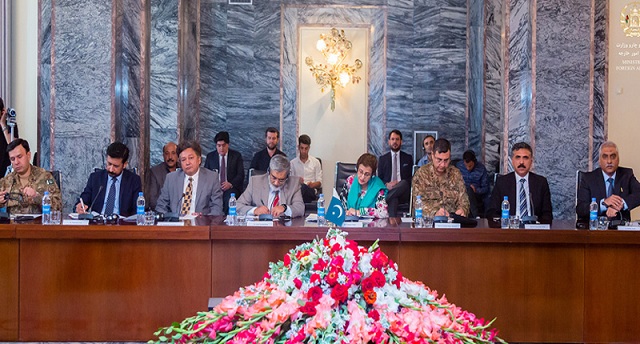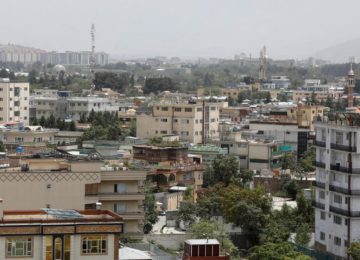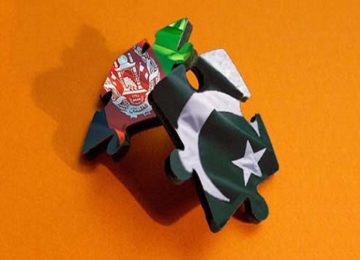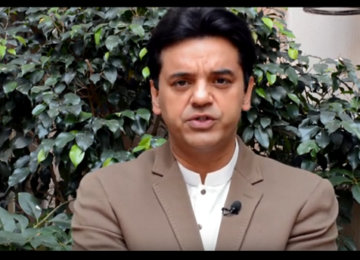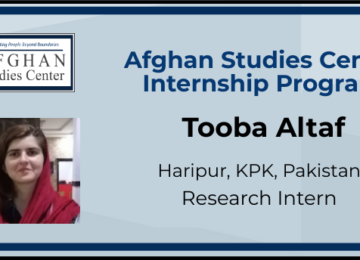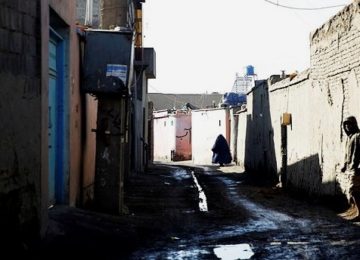Pakistan on Sunday renewed its support for President Ashraf Ghani’s dialogue offer to the Taliban as senior diplomats, military and intelligence officials of the two countries met in Kabul to explore ways to implement key principles of a bilateral dialogue that also calls for actions against fugitives and the irreconcilable elements, posing security threats to either of the two countries.
Foreign Secretary Tehmina Janjau led a 28-member delegation at the inaugural session of the five working groups of Afghanistan-Pakistan Action Plan for Peace and Solidarity (APAPPS), a joint action plan for cooperation in key areas of counter-terrorism and for reduction of violence and promotion of peace and reconciliation involving repatriation of refugees and joint economic development.
At the meeting, Janjau was confident that the joint working groups would solve many problems between the two countries. “I have brought a message to reiterate support to the President Ashraf Ghani’s peace plan to the Taliban,” she said.
President Ghani had unveiled his peace initiative in February that also included recognition of the Taliban as a political movement, offering them office in Afghanistan. Taliban, who have declined all previous such offers on the plea that the Kabul administration is powerless and is not a party to the conflict, did not respond to Ghani’s offer that had received worldwide support.
The Sunday’s talks were held amid reports that the Trump administration had instructed its diplomats to initiate direct talks with Taliban.
Taliban had long been calling for direct talks with the United Stated to discuss if and when the American and its NATO allies would leave Afghanistan.
A Taliban official at the Qatar office told Daily Times that no talks with the Americans had been held as yet. But he evaded a question when asked if the US had contacted the Taliban political office for the possible talks.
Pakistani officials say reconciliation with the Taliban is one of the important items on APAPPS agenda and both sides have tasked intelligence chiefs to explore ways how to encourage the Taliban to join the peace process.
Janjua said that despite upcoming elections in Pakistan, the presence of the high level Pakistani delegation in Kabul “shows our commitment to APAPPS”.
Afghan Deputy Foreign Minister Hekmat Khalil Karzai, who led his country’s delegation, expressed the hope that APAPPS would produce expected results. He reaffirmed Afghanistan’s commitment to working with Pakistan to achieve peace in Afghanistan and the region, according to an Afghan Foreign Ministry’s statement. Daily Times also received that statement.
Pakistan and Afghanistan have formed five groups: Political-Diplomatic Working Group, military to military, intelligence cooperation, economic and Refugee Working Group.
A Foreign Office statement in Islamabad conformed late Sunday that the Pakistani delegation comprising 28-members, including representatives from Ministry of Foreign Affairs, States and Frontier Regions, Commerce, FBR, Railways, Communications, Interior, Military and Intelligence met their Afghan counterparts in respective working groups.
At the inaugural meeting of the working groups, both sides assessed prospects for the APAPPS forum that covers all areas of mutual interest, including counter terrorism and security, peace and reconciliation, bilateral trade and transit, connectivity, Afghan refugees’ repatriation and promoting people-to-people contacts.
Following the APAPPS inaugural session, five working groups held their respective meetings at the level of relevant ministries and departments. The working groups, besides discussing important issues, also deliberated on the TORs for future course of action and the agenda items for their next round of meetings to be held in Islamabad at mutually agreed dates, the statement added.
“The concluding session noted the great importance of APAPPS to deliver on the commitments within the mutually agreed timeframe,” the Foreign Office said.
The author Tahir Khan is a distinguished member of CRSS’ Pakistan-Afghanistan Track 1.5/II initiative Beyond Boundaries. This article originally appeared in Daily Times on July 23, 2018.
Disclaimer: Views expressed on this blog are not necessarily endorsed or supported by the Center for Research and Security Studies, Islamabad.



